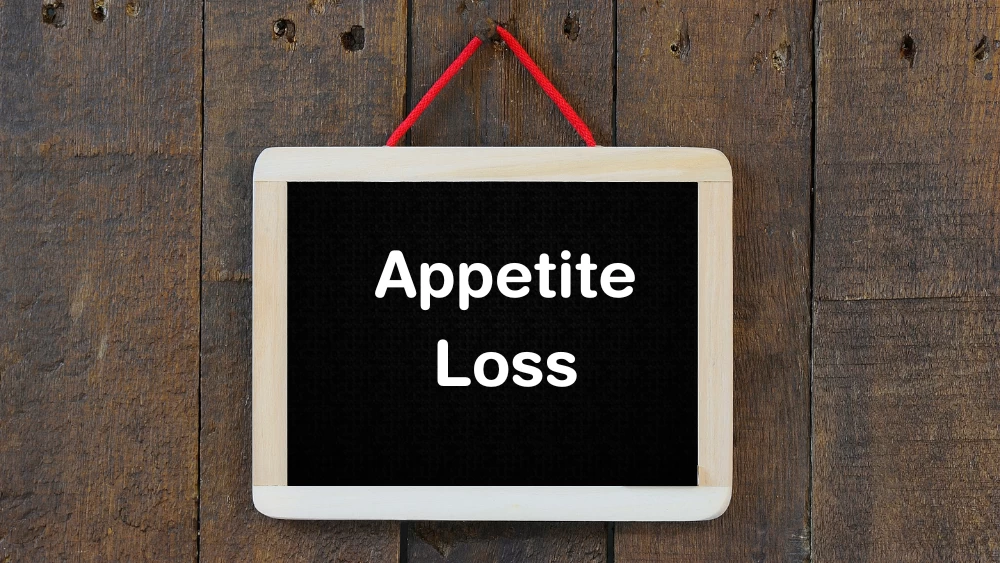
- 2nd February 2023
Table of Contents
Appetite Loss
Appetite loss is a common condition that affects people of all ages. It can be caused by various physical or mental health issues, and it often prompts an individual to question what the underlying cause might be. If you’ve been feeling less hungry than usual, it’s important to understand the potential causes so that you can seek appropriate treatment. Appetite loss can result from various medical conditions such as diabetes, cancer, HIV/AIDS, thyroid disorders and even depression or anxiety. In some cases, lifestyle choices such as overeating or skipping meals may also lead to decreased appetite. Certain medications have also been known to contribute to reduced hunger levels in individuals, such as those used for pain management or hormone replacement therapy.
Symptoms of Appetite Loss
Living with appetite loss can be an uncomfortable and sometimes scary experience. The first step in understanding the reason behind your lack of hunger is to recognize the signs and symptoms it presents. Appetite loss can manifest in many different forms; some may feel a general decrease in hunger or food cravings, while others may have difficulty eating due to physical discomfort or disinterest. Some common indicators of appetite loss include fatigue, nausea, vomiting, dysphagia (difficulty swallowing), changes in taste and smell, constipation or diarrhea, anxiety or depression. It is important to take note of any changes you are experiencing so that you can correctly identify whether you are dealing with a temporary issue or something more serious. With an accurate diagnosis from your healthcare provider, you can begin exploring proper treatments for your specific condition and get back on the road to feeling like yourself again.

Causes Behind Appetite Loss
Appetite loss is a common symptom that can be caused by a variety of underlying reasons. Many people struggle with this issue, but understanding the cause of your appetite loss can help you take steps towards improving it. In this article, we explore some potential causes of your unexpected drop in appetite and what you can do to address them. According to the best dietician in India, Dr. Pankaj Kumar, the most common reasons for decreased appetite involve medical conditions such as diabetes, depression, or chronic fatigue syndrome. These health issues often lead to changes in hormones that affect our hunger signals as well as changes in metabolism and digestion. Additionally, certain medications like antidepressants or antibiotics may result in decreased appetite due to their impacts on the gastrointestinal system. In addition to medical causes, there are also psychological factors that may impact our appetites; stress or anxiety can lead to difficulty eating due to distraction or lack of interest in food.
Health Consequences of Appetite Loss
Losing your appetite can have serious consequences on your overall health and wellbeing. Complications such as malnutrition, weight loss, and vitamin deficiencies can arise if left unchecked. It is important to understand the potential causes of appetite loss in order to take steps towards restoring it and preventing further complications. In a conversation doctor dietician Dr. Pankaj Kumar told that appetite loss can lead to a wide range of complications, including nutrient deficiencies caused by malnutrition which can lead to anemia or impaired function of organs such as the heart, liver and brain. Weight loss caused by lack of food intake can also occur, resulting in fatigue and weakness due to inadequate energy reserves in the body. In some cases, chronic gastrointestinal conditions may be at play causing long-term damage if not managed appropriately. Thus understanding the main cause of appetite loss is essential for proper diagnosis and treatment strategies so that any associated health risks can be minimized or avoided altogether.
Treatment for Appetite Loss
Do you or someone close to you suffer from an unexplained appetite loss? If so, it is important to seek professional help and treatment. You may find that the underlying cause of your appetite loss is easily treatable with lifestyle changes, such as increasing physical activity or eating nutritious foods. Alternatively, there could be a more serious medical condition causing the problem that requires specialized care. It’s best to speak with a qualified health professional about your appetite loss in order to identify the underlying cause and get appropriate treatment. Depending on the severity of your symptoms, they may recommend dietary changes or medications. In some cases, cognitive behavioral therapy (CBT) may also be recommended in order to address any psychological issues associated with your lack of appetite.
Prevention in Case of Appetite Loss
Taking Action is an important part of dealing with health issues such as appetite loss. Everyone needs to be aware of the different causes, symptoms, and treatments for this condition so that they can take steps to prevent it before it becomes serious. Appetite loss can be caused by a variety of factors, including certain medications and changes in lifestyle habits, but it can also have more serious underlying causes such as anemia or depression. It is important to understand the reasons behind why someone may experience appetite loss so that appropriate action can be taken and further complications avoided. Fortunately, there are several prevention strategies people can employ to help manage their appetite loss. Eating small meals throughout the day rather than large meals will help keep energy levels up and make digestion easier. Avoiding processed foods and keeping sugar intake low will also help keep your body healthy and avoid triggers for potential problems.
Role of diet to overcome Appetite loss

According to best dietician in Delhi, Dr. Pankaj Kumar, diet plays an important role in addressing appetite loss. The inability to feel hunger or the lack of interest in food are common symptoms of appetite loss, with many causes being both physical and mental. It is essential to identify the root cause and seek medical advice before trying to treat appetite loss through diet alone. One way a person can treat their appetite loss through diet is by making small changes that focus on nutrition rather than quantity. He also mentioned that eating smaller meals more frequently throughout the day can help keep energy levels up and may encourage better eating habits overall. Consuming nutrient-dense foods like fruits, vegetables, lean proteins, nuts, seeds, dairy products and legumes will also provide vital nutrients that may be lacking due to reduced food intake.
Conclusion: Moving Forward
The article "What is the Reason Behind My Appetite Loss?" explored the potential causes of reduced hunger or appetite. While there are a variety of factors that could contribute to a diminished appetite, the most obvious answer is often overlooked: stress. Stress can have a powerful impact on our bodies and minds, so it's important to recognize when we're feeling under pressure and take steps to manage and reduce it. Moving forward, understanding stress management techniques can be helpful in terms of controlling appetite loss. This might include establishing healthy lifestyle habits such as meditation, exercise, adequate sleep and eating regular meals throughout the day – all of which can help to reduce anxiety levels and boost overall wellbeing. Additionally, seeking professional help from a doctor or therapist may be necessary if symptoms persist for an extended period of time.














